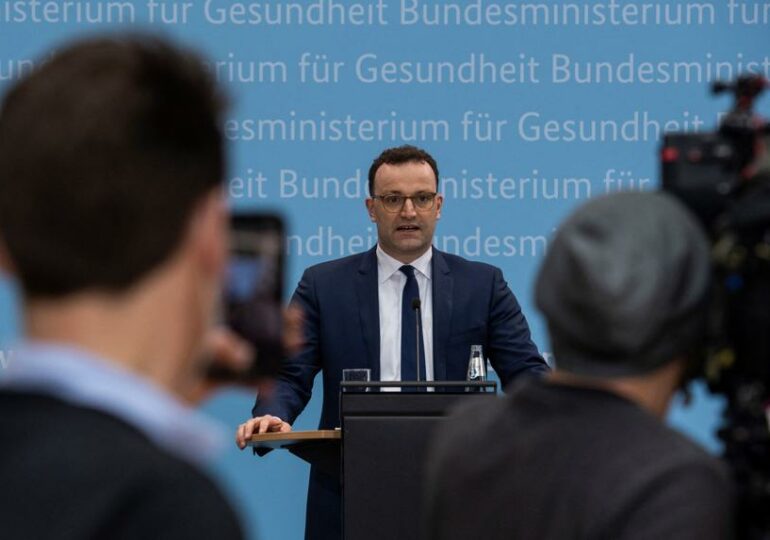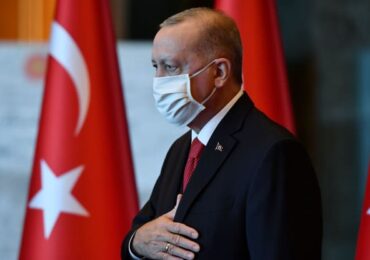On Monday, Germany, France, Italy and Spain became the latest countries to halt the administration of the Covid-19 vaccine developed by Oxford University and pharmaceutical giant AstraZeneca. These countries are following in the footsteps of Denmark, Norway, Ireland, the Netherlands and Thailand, who have also suspended use of the vaccine, which has yet to be authorized for use in the United States.
Ostensibly, these suspensions are due to a cluster of cases in which the vaccine may have increased the risk of blood clotting. But multiple experts say that the vaccine is safe and that suspensions hinder efforts to roll out vaccines worldwide. Others worry the vaccine is being put on hold for political, rather than scientific, reasons. This is especially a concern given that demand for vaccines currently outstrips supply as Covid-19 cases continue to spike across Europe.
Several countries have reported a possible increase in blood clotting among patients who received AstraZeneca’s vaccine. There have been 37 such reports among the 17 million people vaccinated across the U.K. and EU, and preliminary reports suggest one person each in Italy, Austria and Denmark died due to blood clots after getting the AstraZeneca vaccine. The European Medicine Agency’s (EMA) safety committee cautions, however, that none of those deaths were actually linked to the vaccine. The committee further noted that several people who got blood clots were middle-aged, when such clots are more common, and that blood clots aren’t particularly rare in the general population. AstraZeneca noted in a statement that the number of blood clots are actually “much lower than would be expected to occur naturally in a general population of this size.”
Davey Smith, an infectious disease specialist at the University of California San Diego, is baffled by governments’ decisions to suspend use of AstraZeneca’s vaccine. “I’ve seen no data to see why they are stopping,” he says, adding, “People are going to get blood clots, because they would have gotten them with or without the vaccine.”
Jennifer Nuzzo, an epidemiologist at the Johns Hopkins Bloomberg School of Public Health, also expressed surprise at these governments’ moves. “Pausing to review data is fine,” she says. “But what pausing means is losing ground against protecting people against a deadly pandemic, so there is something lost with that.”
Once considered to be the leader in the race for a Covid-19 vaccine, AstraZeneca has ended up facing more hurdles than its competitors. Problems started last September, when global trials of the vaccine were paused due to a patient experiencing a severe illness. The trial soon resumed, but two months later the company revealed a blunder: in the U.K. trials run by Oxford, participants had accidentally been given half-doses of the vaccine, a mistake that shook the faith of regulators in the U.S., who now expect final clinical trial data from AstraZeneca in April.
Still, data in ongoing international trials proved more promising: the vaccine was 82% effective at preventing Covid-19 after two doses, and 100% effective at preventing hospitalizations and death. The strong showing led to emergency authorizations for the vaccine in the United Kingdom in December, with authorizations from the European Union and World Health Organization in early 2021. So far, doses of the vaccine have been administered to 17 million patients in Europe.
The AstraZeneca vaccine uses a DNA component that instructs cells to produce the same proteins that are found on parts of the virus that causes Covid-19. These proteins train the body’s immune system to produce antibodies against it. It’s delivered into people’s systems using a modified version of a virus for the common cold that infects chimpanzees, but can’t make people sick. One advantage it has over vaccines produced by Pfizer and Moderna is that it can be refrigerated rather than frozen and is more durable for transportation. This makes it of particular importance in distributing the vaccine worldwide. “I think the stakes with AstraZeneca is particularly high,” says Nuzzo, “because this was anticipated to be a vaccine that much of the world will ultimately come to depend on for their vaccination efforts.”
“In the end it could be very harmful for the whole vaccine rollout in general.”
So why are so many European countries taking the seemingly radical step of halting administration outright? In a report published earlier this month by Barclays, the investment firm looked at some of AstraZeneca’s previous regulatory issues and suggested that “most of the controversy that has been had a political genesis rather than a scientific one.” In noting some of the differences between what EMA had approved for the vaccine versus how some European countries had authorized use of the vaccine, the report goes on to speculate that “authorities in certain geographies may have been looking for someone to blame for an initially frustrating rollout.” Public health experts speculated to Forbes that similar reasons may have fueled the recent suspensions. An interesting contrast can be seen in Canada, which is reportedly preparing to expand its authorization of the vaccine to senior citizens, when it had previously not been recommended for adults over 65.
Justified or not, halting the administration of AstraZeneca’s vaccine risks exacerbating an already strong reluctance to get vaccinated. A recent policy brief from the European Centre for Disease Prevention and Control found that less than half of people in the E.U. believe that Covid-19 vaccines are safe. For this reason, Nuzzo urges public health agencies to be transparent throughout the process of evaluating the vaccine during its suspension. “Sometimes what happens is countries make this announcement, and then they’re kind of silent for weeks,” she says. “And really in that void, a lot of misinformation can rise to fill what is lack of communication.”
Smith agrees and adds that suspending the administration of the vaccine is a risk in the greater fight against the pandemic. “In the end, it could be very harmful to the whole vaccine rollout in general,” he says. Based on the reported data, he says he doesn’t see a justification for governments suspending the vaccine, commenting that “if they do have data, and if they’re making decisions based on data that nobody has, then it’s a transparency problem.”
So far, suspensions among E.U. nations aren’t expected to halt distribution elsewhere. Earlier this month, the COVID-19 Vaccines Global Access (COVAX), a public-private vaccine initiative to distribute vaccines to emerging economies, began distributing doses of AstraZeneca’s vaccine to India, Ghana and Cote D’Ivorie. More are expected to follow, with 237 million doses allocated to over 130 countries this month. “Safety is our paramount concern: we know that national authorities and the WHO are monitoring the situation closely and the COVAX Facility will be following their guidance and recommendation,” a spokesperson for Gavi, the private-public partnership responsible for distributing vaccines for COVAX told Forbes. “Currently no causal link has been established between the vaccine and thromboembolic events in individuals, and the vaccine remains an important and effective public health tool in the fight against this pandemic.”













